Reading comprehension Easy Reading Non-Fiction Worksheets for Ages 3-7
6 filtered results
-
From - To
Unlock the joy of reading with our Easy Reading Non-Fiction Worksheets designed for children aged 3-7! These engaging and educational resources enhance reading comprehension skills by introducing young learners to fascinating non-fiction topics. Each worksheet features age-appropriate texts paired with questions and activities that promote critical thinking and understanding. Comfortable and accessible, these materials make learning enjoyable while fostering a love for reading. Perfect for home or classroom use, these worksheets develop foundational skills that keep young minds curious and excited about the world around them. Start your child's reading journey today and watch them thrive with confidence!
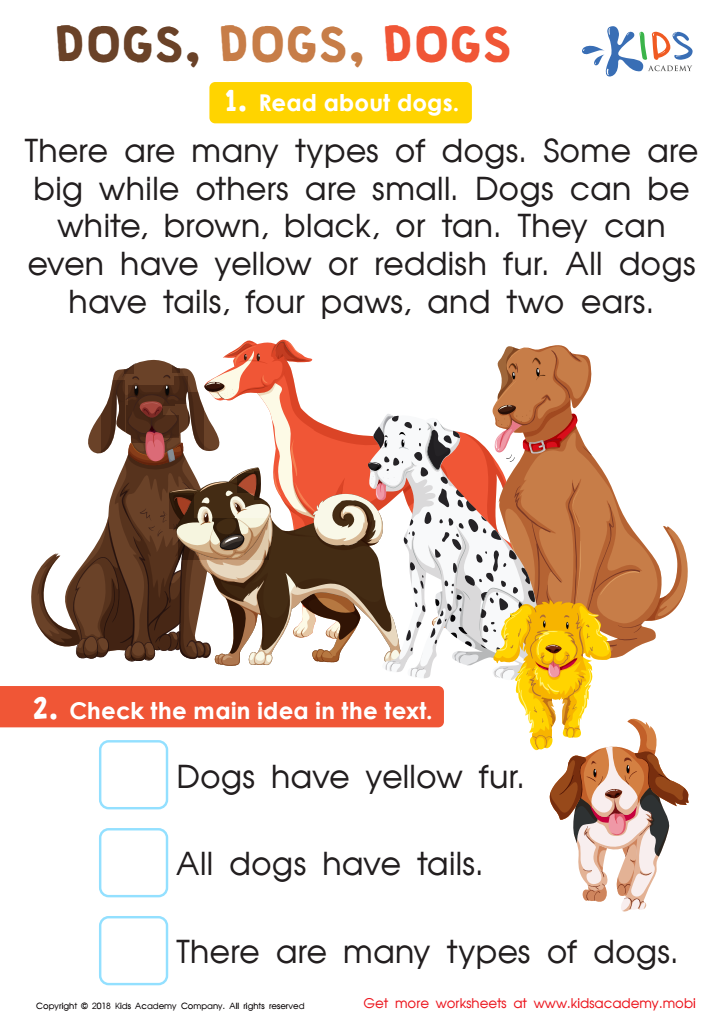

Dogs, Dogs Worksheet
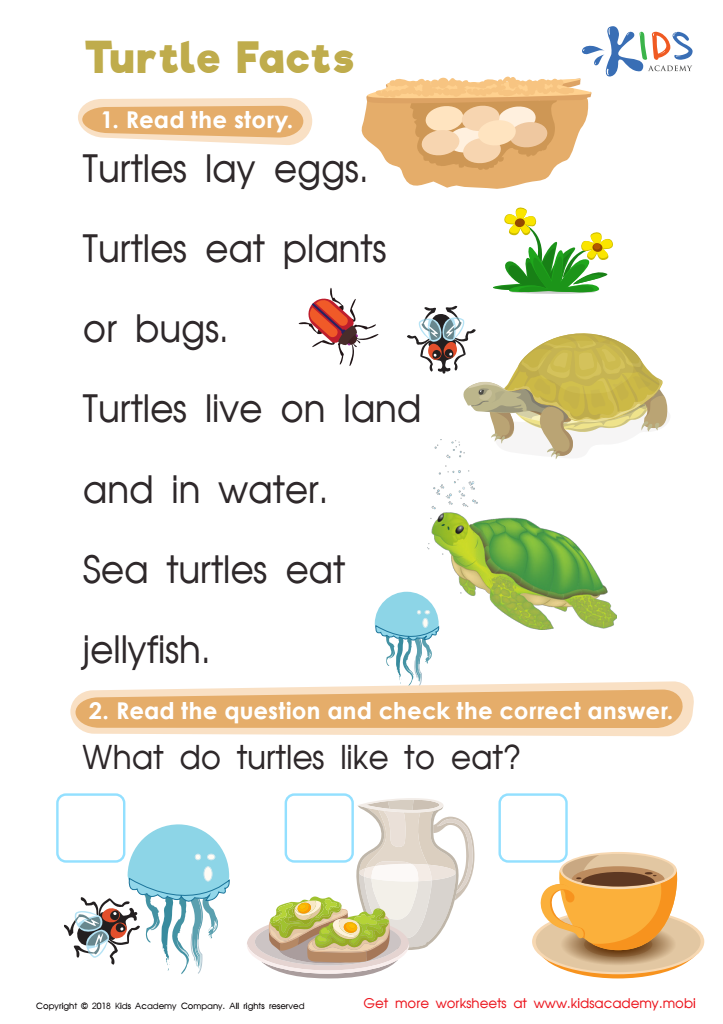

Turtle Facts Worksheet
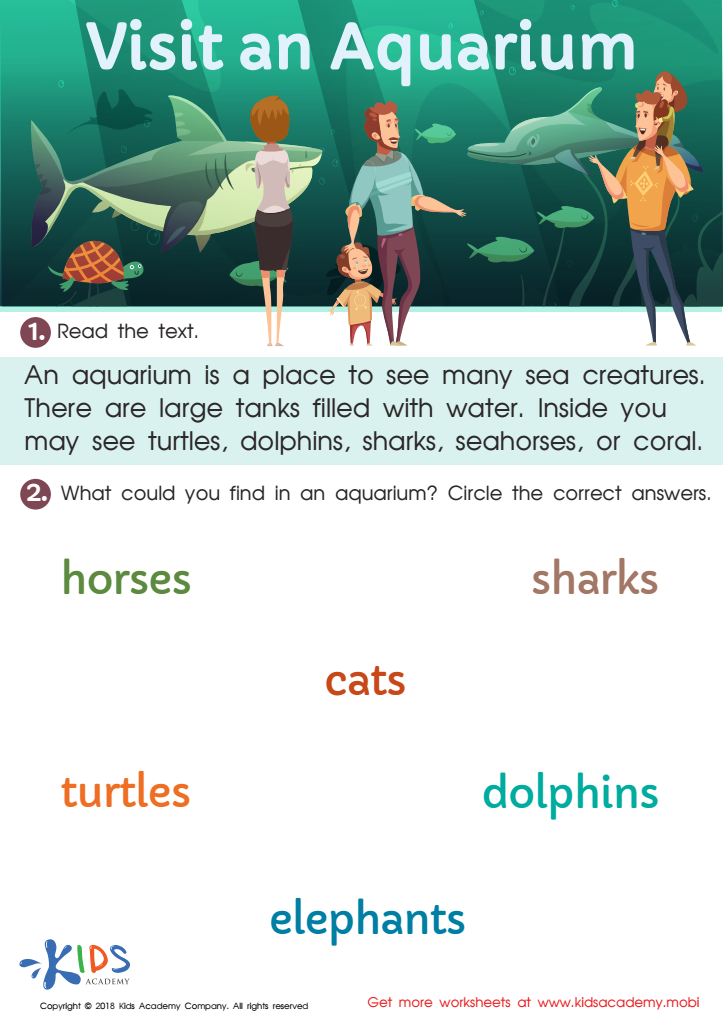

Visit an Aquarium Worksheet
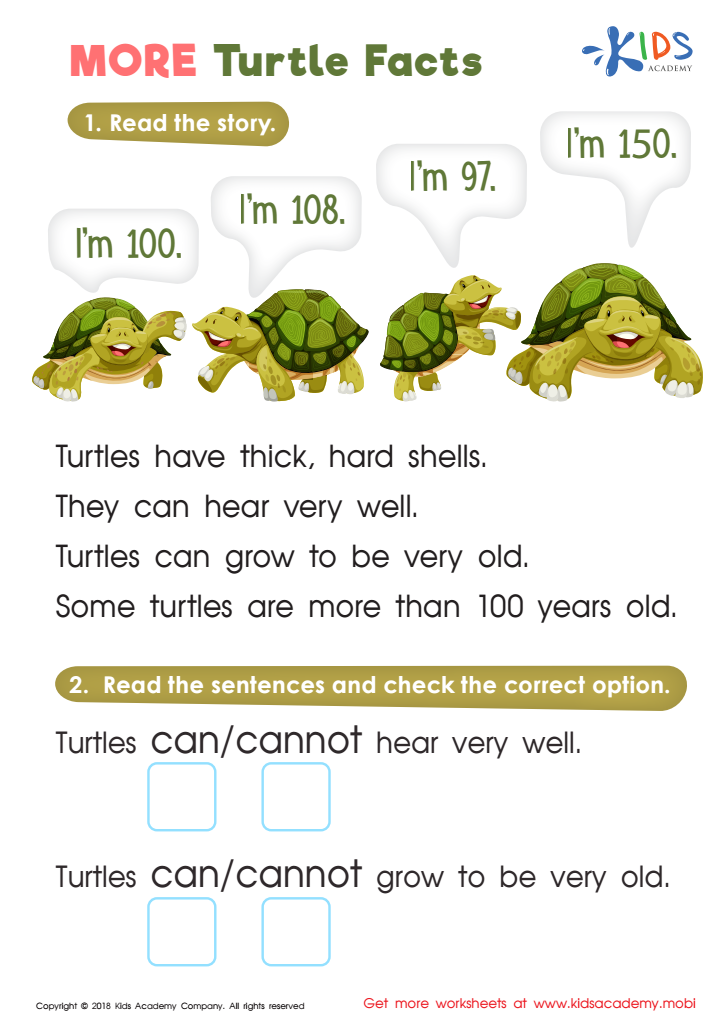

More Turtle Facts Worksheet
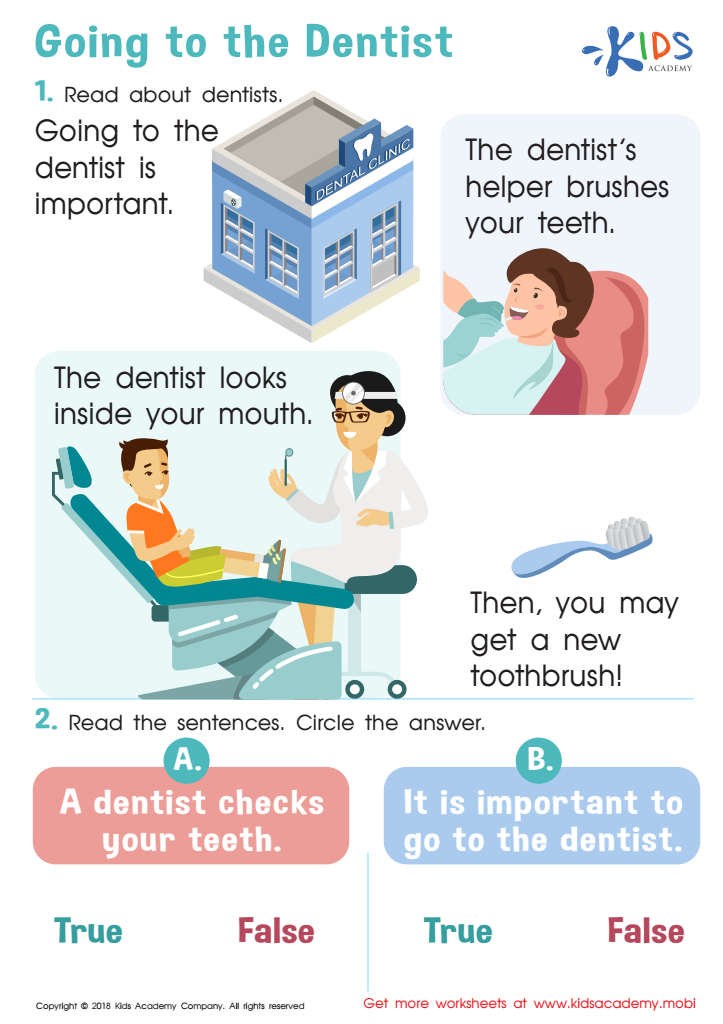

Going to the Dentist Part 2 Worksheet
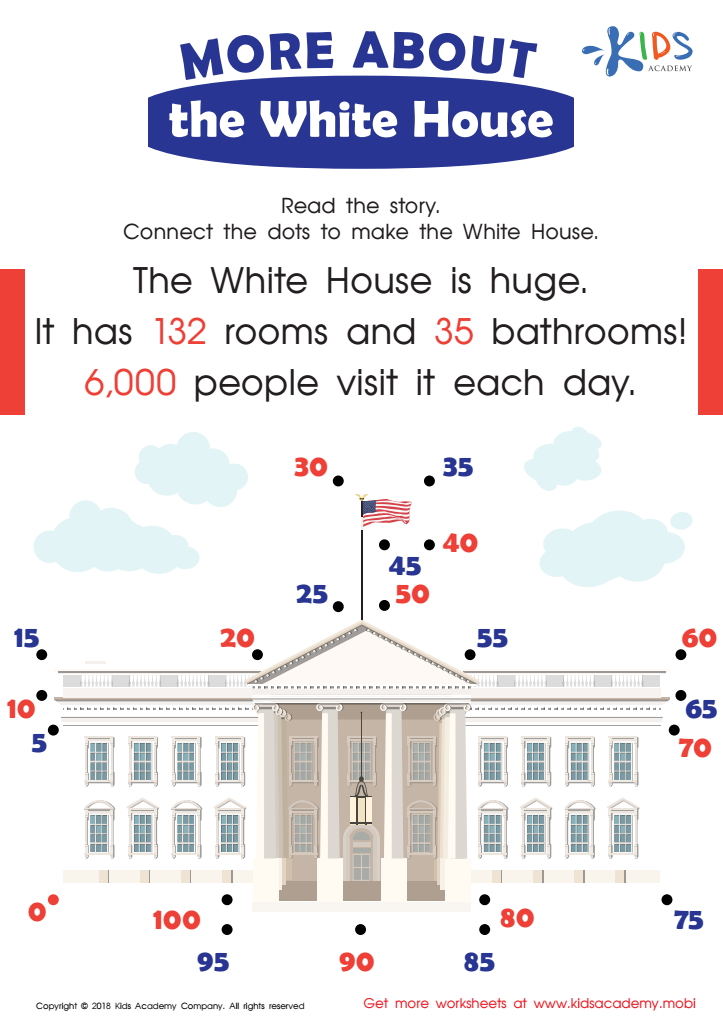

More About the White House Worksheet
Reading comprehension is a vital skill, especially in early childhood, as it forms the foundation for all future learning. For children ages 3-7, engaging with easy reading non-fiction helps them develop critical thinking abilities, expands their vocabulary, and fosters a sense of curiosity about the world.
Parents and teachers should care about this aspect of literacy for several reasons. First, non-fiction texts introduce young readers to real-world facts, concepts, and narratives, enhancing their understanding of various subjects, including science, history, and social studies. This early exposure promotes a love for learning and encourages children to ask questions, thus enhancing their critical thinking skills.
Moreover, easy reading non-fiction is tailored to the cognitive and linguistic levels of young children, making it accessible and enjoyable. It also supports the development of comprehension skills, as children learn to identify main ideas, detail, and context.
Incorporating non-fiction reading into early education not only supports literacy but also lays the groundwork for academic success. Ultimately, nurturing reading comprehension at this stage contributes to well-rounded, informed, and engaged learners who are prepared to explore and understand the complexities of the world around them.
 Assign to My Students
Assign to My Students




















